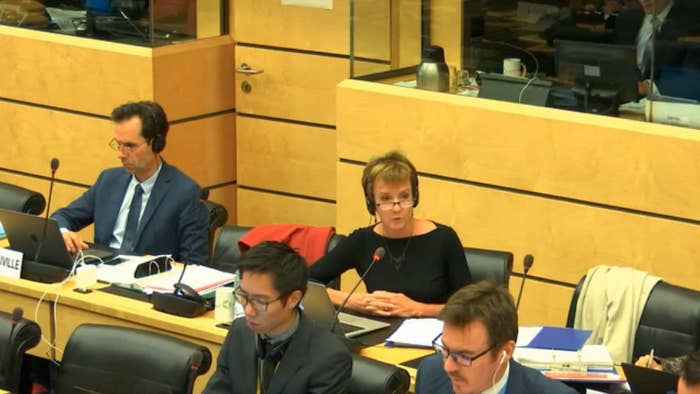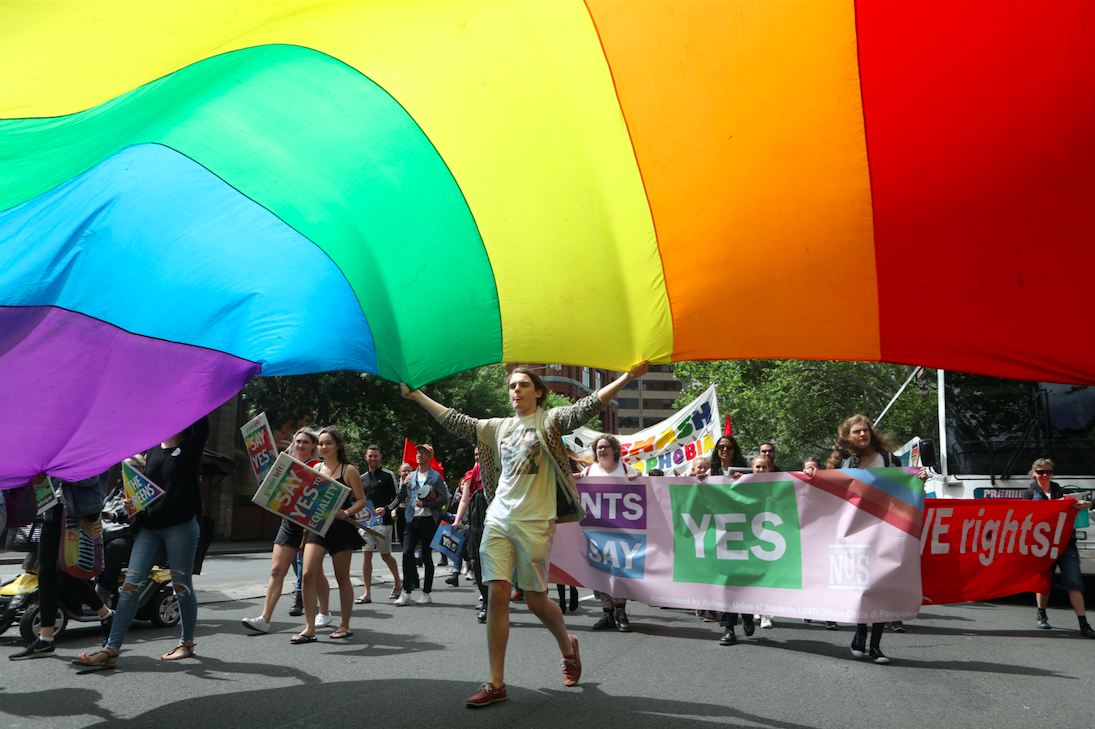
A United Nations committee has warned Australia over its same-sex marriage ban, saying the Marriage Act as it currently stands creates "discriminatory distortions" that amount to breaches of international human rights law.
The comments came at a routine hearing before the Human Rights Committee (HRC) last week, during which Australia was raked over the coals for its "chronic non-implementation" of UN communications.
United States representative Sarah Cleveland, who is a professor of law at Columbia University, cited two recent communications to Australia on LGBTI rights in her questions to the Australian delegation.
In June, BuzzFeed News revealed that Australia had been reprimanded by the HRC over its state and territory laws forcing married transgender people to get a divorce if they wish to change the legal sex on their birth certificate.
Two months later, BuzzFeed News broke the news of a second UN communication – this time over Australia's failure to provide access to divorce for same-sex couples married overseas.
In both situations, the HRC ruled the laws violated Article 26 of the International Covenant of Civil and Political Rights (ICCPR).
Cleveland made the point that the discriminatory laws highlighted in these cases stemmed from Australia's ban on same-sex marriage.

"The two views ... found discrimination on the basis of sexual orientation and gender identity as a result of the operations of laws designed to conform to the ban on same-sex marriage in the Marriage Act," she said.
"In addition to the fundamental question regarding whether the Marriage Act is consistent with the principle of equality in the Australian context, the prohibition on same-sex marriage is creating other discriminatory distortions in Australia’s laws, including regarding divorce for some prohibited foreign marriages but not others, and allowing changes of gender identity for unmarried, but not married, transgender persons."
Australian law recognises polygamous marriage and some instances of underage marriage for the purposes of divorce, but draws the line at same-sex marriage.
Cleveland noted that it was not the position of the committee that the ICCPR requires same-sex marriage, but added: "We have also not taken the position that the denial of same-sex marriage could never violate the covenant, including its non-discrimination provisions."
The Australian government has 180 days from the day of the communication to respond, which will be in December for the transgender forced divorce laws, and in February for the lack of access to same-sex divorce.
Autumn O'Keefe, a staff member in the attorney-general's department, told the committee the government was still formulating its response to the two cases.

Cleveland took firm aim at Australia's current postal survey on same-sex marriage, criticising the government for "resorting to what is essentially a non-binding opinion poll" when it did not have to have a public vote.
"Human rights are not to be determined by public opinion polls, particularly when the rights of vulnerable minority groups are at issue and where a public referendum is not required as a means to alter domestic law," she said.
"Such a risk also involves further marginalising and stigmatising members of those groups."
In response, the Australian delegation told the committee about the postal survey Safeguards Act, which prohibits vilification on the basis of a person being LGBTI or their religious convictions over the course of the survey.
Cleveland also described as "odd" a 2013 amendment to the Sex Discrimination Act that made it impossible for anyone to challenge the ban on same-sex marriage in the courts.
Coincidentally, the hearing was held two days after Australia was unanimously elected to the Human Rights Council along with Spain as a representative for Western Europe and Other States.
Other Australian LGBTI rights issues mentioned during the HRC hearing included a ruling about genital surgery on an intersex infant in a case known as Re: Carla, and the current process for transgender teens to access Stage 2 hormone treatment, which is only available via a court order.

